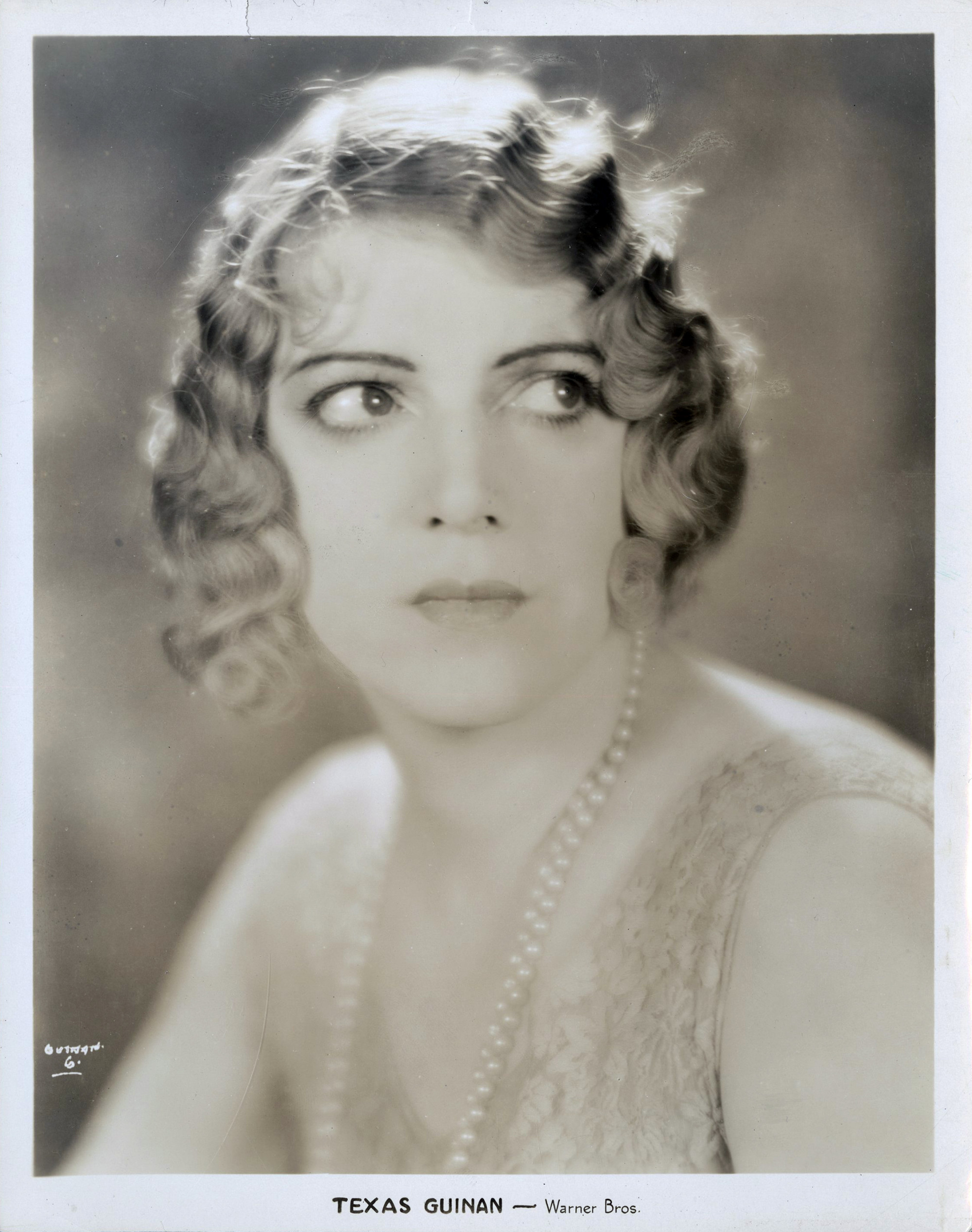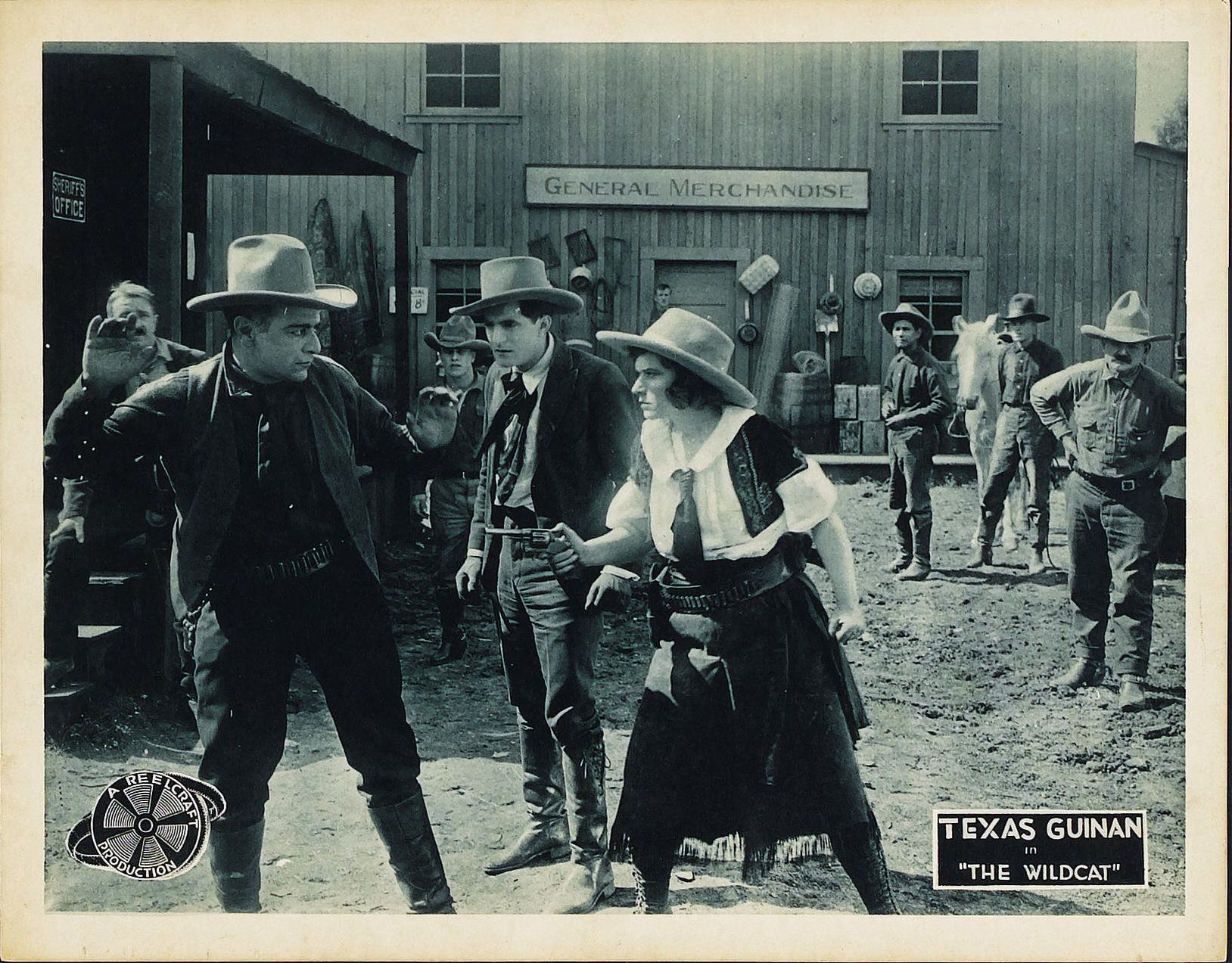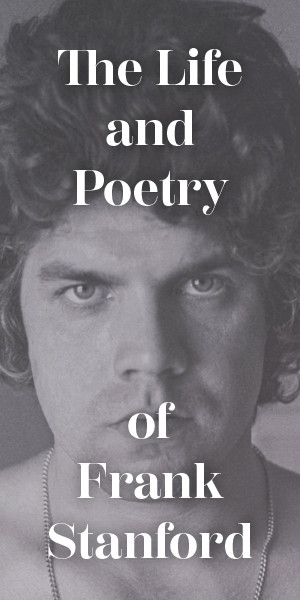Texas Guinan: Hollywood's First Cowgirl
The rule-breaking Texan who became Hollywood’s first cowgirl and New York’s Queen of the Nightclubs
By Drew Björkstén

Circa 1920, Warner Bros (Public Domain)
Crammed into a smoky speakeasy on West 54th Street, the fat cats of New York were out for illicit fun. It was 1927, the age of short flapper dresses, toe-tapping jazz, flowing cash, and bootleg booze. One place in the city where everyone could be sure to have a good time: Texas Guinan’s club.
Anyone was welcome at Guinan’s clubs, like the 300 Club and the El Fay, as long as they could foot the bill. Mayoral candidates, Broadway stars, European royalty, and luminaries like Babe Ruth, Gloria Swanson, and Charlie Chaplin mingled with mobsters, sex workers, drag queens, rumrunners, and insomniacs looking for a stiff drink. To Guinan, they were all chumps, waiting to have their wallets drained.
“Hello, sucker!” Guinan’s catchphrase greeted everyone who walked through the door. Decked out in jewels, her blonde curls cut short, the fast-talking Waco native enjoyed ribbing her clients: “You may be all the world to your mother, but you're just a cover charge to me.”
Guinan was backed up by her showgirls, twenty scantily clad dancers doing the Charleston. As each performer came onstage, Guinan commanded the audience in her Texas twang to “give this little girl a great big hand.” Perched atop a stool in the middle of the pandemonium, Guinan belted out show tunes, broke up fights, whopped high-end riffraff on the head, and generally kept the good times rolling.
Texas Guinan was the Roaring Twenties personified. Today, she's been relegated to a footnote, but Guinan didn’t just reign over Prohibition nightlife, champion the flapper, and thumb her nose at the police; before she became Queen of the Night Clubs, she had a remarkable career as the first gun-slinging cowgirl in Hollywood. Because of her indefatigable spirit, Guinan enjoyed astounding success–and redefined femininity–in two different industries. She credited her grit and gusto to her home state of Texas.
She was born Mary Louise Cecilia Guinan in Waco on January 12th, 1884. Later in life, Guinan advised aspiring entertainers: “Exaggerate the world. Dress up your lives with imagination.” It was a doctrine in which she was well-practiced, having told the press plenty of tall tales. In 1910, Guinan informed The San Francisco Call that she had grown up on a ranch outside of Waco, where she “learned to ride and hunt and do other sportsmanlike things usually barred to girls.” In reality, the Guinan family lived in Waco proper, just a few blocks from the downtown, where her father was a grocer rather than a rancher.
She bragged about winning a bronco-riding contest in Wyoming, single-handedly herding cattle on a fifty thousand-acre ranch, joining the circus, and even that she had received a medal from the French commander General Joffre for her service during World War I. It was all baloney. Despite her fanciful stories, it’s clear that from an early age Guinan wanted to cast herself as the hero. The Waco Times reported that she was awarded the Roosevelt medal for saving an old man from certain death on the railroad tracks, but that may also be a lie. As a student at the Convent School of Sacred Heart, she once, purportedly, and more believably, sent a baby downstream in a basket just so she could rescue it.
The Guinans moved to Denver, Colorado when Texas was a teenager. It was there that she began performing in plays and, in nearby Idaho Springs, Colorado, where she met her first husband, John Moynahan, a newspaper cartoonist. When he got a job with the Chicago Tribune, the newlyweds moved East. But Guinan had too much talent and ambition to stand still. By 1907, she had left her husband behind and moved to the Big Apple. There, after seeing her perform, Texas senator Joseph Bailey encouraged Guinan to become the “Texas representative” in show business and rechristened her after the state. From then on, Mary was known as Texas.
Alone in New York, Guinan rented an apartment in Greenwich Village and auditioned for Broadway roles. For $15 a week, she was cast as a member of the ensemble in the musical comedy “The Girls from Gottenberg.” She wasn’t part of the chorus for long, though: Photoplay magazine later quipped that she had been a “chorine just two days.” By 1909, she was a “budding prima donna,” touring the country with a vaudeville troupe, singing hits like “Shine On, Harvest Moon” while suspended seven feet above the stage.
Guinan loved the spotlight (The LA Times complained that she loved it “too much”), and no stunt was too risky when she was in its glow. Once, during a performance on tour, Guinan shot herself in the side with a .44 revolver and continued the scene, unfazed. She claimed she didn’t even realize she’d been hit until the end of the act, when her shoe was full of blood. Guinan accrued a “following of theater patrons from coast to coast,” but the stage was too small for her. She soon found her niche: Hollywood Westerns.

Lobby card for The Wildcat (Public Domain)
In 1917, Guinan signed with Triangle Film Corporation and began starring as the “two-gun woman” in a series of silent two-reel Western melodramas. “It isn't every actress who is courageous enough to attempt a characterization which obliterates every vestige of feminine grace and charm,” Motion Picture magazine wrote in 1919. “But Texas Guinan doesn’t mind it the least.” In titles such as The She Wolf (1919), The Girl of Hell's Agony (1919), and The Dangerous Little Devil (1919), Guinan busted bad guys, raced on horseback, and was always “quick on the hair trigger.” From 1917 to 1921, she starred in thirty-three films (though she later inflated the number to 212), including two directed by Francis Ford, the great John Ford’s older brother and mentor.
In early Westerns, female roles were usually limited to schoolmarms and sex workers. Then Guinan burst onto the scene, guns blazing. She was dubbed the “female Bill Hart,” the first two-gun cowgirl in Hollywood. In a review of The She Wolf, Motion Picture News wrote that Guinan was “speaking a new screen language…a language which ushers in something new in feminine types.” According to the Exhibitors Herald, she carved out a new “vital, dominant feminine factor in the life of the West,” one characterized by bravery and independence.
Guinan also rebelled against expectations of femininity offscreen, starting her own company, Texas Guinan Productions, in 1921. She was an industrious and innovative producer, highly involved in all aspects of her productions. At Texas Guinan Productions, she continued to star in groundbreaking roles and redefine cinematic femininity. In the first film she produced, Texas of the Mounted (1921), Guinan plays male/female twins. When the brother is murdered, his twin sister takes vengeance while donning her brother’s Western wear.
By 1922, Guinan had become a “big western star,” but she’d grown tired of “kissing horses in horse operas,” as she put it. Back in New York, after livening up a stuffy midtown party, Guinan found herself working as a speakeasy emcee. The same vivacity and impishness that had made her a vaudevillian and Western heroine propelled her to the title of Queen of the Night Clubs. Within a few years, the tomboy from Waco had become a national celebrity and a speakeasy sensation. She was raking in bills by the hundreds of thousands, headlining gossip columns, and rubbing elbows with princes, movie stars, and gangsters.
But it wasn’t only smooth sailing for Texas. Under Prohibition, Guinan’s clubs became just as famous for being raided by the feds as they were for their boozy debauchery. Characteristically, though, the “padlock princess” put up a good fight. As soon as the cops shut down one of her speakeasies, another sprang up around the corner. On her strategy for staying in business, Guinan told Motion Picture Classic magazine: “Keeping business as usual in the night club racket is simply a geographical matter.” She didn’t bat an eye at the threat of legal action–or spending the night in the slammer. Instead, she quipped, “I’ve got so used to appearing at the Federal Building that now I call it my Alma Mater.” The Decatur Daily reported that when ordered to appear before the United States Commissioner at 10 a.m., Guinan replied “I can't appear then. I’ll be fast asleep.” Ever the provocateur, she was known to cue “Prisoner’s Song,” a hit by fellow Texan Vernon Dalhart, as patrons were loaded into paddy wagons during police raids, and she once led clubgoers in several renditions of the song all the way down to the station.
Guinan was always acquitted. However, in 1928, she was arrested for serving liquor (though she claimed she’d “never touched a drop” in her life), paid a $10,000 bond, and promised the cops she’d “take a long journey.”
Guinan moved back to Los Angeles and took another shot at making movies, this time playing herself. Queen of the Night Clubs (1929), her first film in nearly a decade, was a flop. To make matters worse, the Great Depression had hit––despite Guinan’s proverb that “an indiscretion a day keeps the Depression away.” Suddenly, people didn’t have the extra cash to spend on movie tickets or overpriced cocktails. As the New York Herald Tribune mused, in 1933: “With the world beset by tragedy and fear, her flip remarks, her gay shouting and the antics of her girls…were not funny any more.”
Guinan hit the road, touring with the satirical revue Too Hot for Paris, inspired by her much-publicized expulsion from the French city. While touring the show at the 1933 Chicago World’s Fair, Guinan contracted amebic dysentery. On her deathbed in Vancouver, she retained her acerbic wit, telling her showgirls, “I would rather have a square inch of New York than all the rest of the world.” She died, aged 49, on November 5th, 1933. Exactly one month later, Prohibition was repealed. A symbol of the period, Guinan could not outlive it.
Somewhere between seven thousand and twelve thousand people attended Guinan’s funeral in New York. She had requested an open casket “so the suckers can get a good look at me without a cover charge.” Cloaked in a sequined chiffon gown, blanketed in orchids and pansies, and sporting “diamonds as big as headlights,” Guinan did not disappoint. The Texan, nightclub hostess, Hollywood heroine, and vaudevillian knew how to entertain to the end.
This profile was published in partnership with the Women Film Pioneers Project at Columbia University Libraries.




